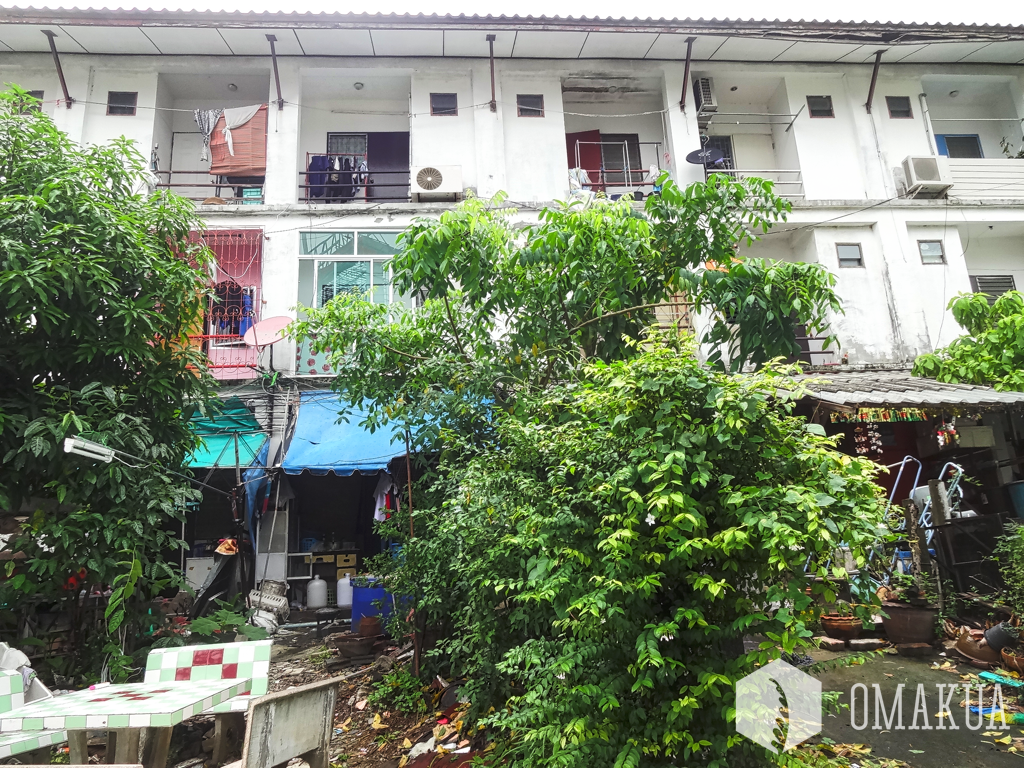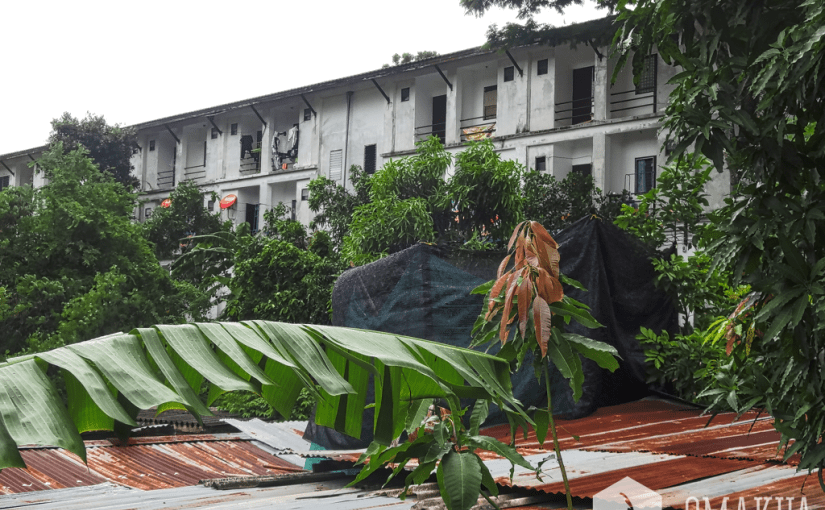Many of the NGOs on Phuket work with children and women. We have met with Roelien Muller from the Asia Center Foundation, who gave us insight into the humanitarian situation on Phuket.
Read our article about the Asia Center Foundation here.
Phuket is one of the favourite tourist destination of many foreigners that come to Thailand. Beautiful beaches, good food, cheap prices and a pulsing night life are why many “get hooked” on Phuket. But Phuket also has its dark sides. While cruising around the island, Lesly and I came across the poorer neighbourhoods on Phuket. Dirty apartment towers and slums co-exist with five star hotels and beautiful villas, drawing a contrasting picture of Phuket.

Roelien told us that when she arrived in Phuket, there was one big slum close to the Patrong area. However, a road has been built through the slum, destroying the accommodations and forcing the families to find a new place to life. Today, there is not one big slum on Phuket anymore, but several smaller ones that are dispatched around the Patong and Katu area. On the spot of the former big slum is now a shopping mall.
After the slum has been destroyed, efforts have been made to build low-cost accommodation for the poor. However, the apartments are relatively expensive, with three to four thousand Baht per month, according to Roelien, which is seventy to one hundred euros. The apartments are not maintained and have started to rot away years ago. Some families don’t even have a bathroom!
Many of the families living in Phuket’s slums are not originally from Phuket, but come from Myanmar or other, poorer regions of Thailand, like the North-East. The situation of the Burmese in Thailand is a difficult, complex and important topic, which will be treated in a different article.
Many of the Thai migrants that come to Phuket are unskilled. Phuket is an expensive island to live on, compared to the rest of Thailand, and many families struggle to make ends meet. Sometimes the women start working in bars, out of lack of alternatives. From there on its “downhill,” like Roelien said, meaning prostitution. Some parents also recycle garbage to gain money, are motorbike taxi drivers, cleaning ladies, have laundry services or fruit cars. However, the income remains very low.
Further, drug addiction is a big problem in Phuket’s slums. Whether the drug addiction leads to living in the slum, or whether the living and working conditions, as well as the low income and life quality lead to drug addiction is not important. Many people living in the slums struggle with addiction to alcohol or other drugs.
The life in slums is especially hard for children. Often they are neglected because they parents work all day or are drug addicted and cannot take care of their children. Even though school is mandatory in Thailand until age 15, a lot of the slum’s children drop out of school when they are old enough to do small jobs and earn money. Or the parents do not care if the children go to school, or they take their kids out of school on purpose for them to work.
It also happens that the children are abandoned or raised by relatives. Some parents are in prison, others run away because they cannot deal with the pressure. Roelien also talked about a high suicide rate. According to the WHO, in 2002, nearly 5,000 people killed themselves in Thailand. I have, so far, not heard that suicide is a big problem in Thailand and will inquire on this topic.
Conclusion
While Phuket is a holiday island of cheap fun for some, it also is the hard reality for others. There is nothing wrong with enjoying yourself, but keep in mind that you are lucky and try to do something for the less fortunate while you are here. If you want to make a donation to the Asia Center Foundation, click here.
